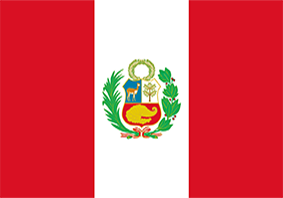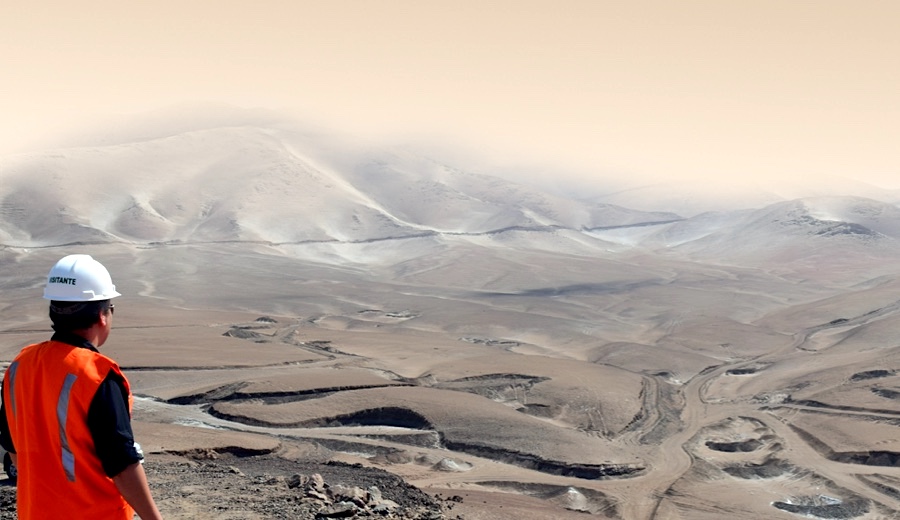
Peru plans to give Southern Copper key permit for long-delayed $1.4B project


Southern Copper has spent years waiting for the construction license, a final green light for Tia Maria that consecutive governments have declined to give amid fears it would revive deadly protests that first derailed the project in 2011.
If the company does not secure the permit by August, it might have to wait at least another year while the government reviews a new environmental impact study.
Southern Copper told investors earlier this month that it that it expected to receive the permit "in a short timeframe." This year, Peru will likely produce 2.51 million tonnes of copper, up 3% from last year
"That's what we expect," Energy and Mines Minister Francisco Ismodes told Reuters when asked if the license would likely be granted by August. "It's a project that's been prioritized by the government so that it can be implemented in 2019."
The mine is slated to produce 120,000 tonnes of high-grade copper annually.
If Southern Copper builds Tia Maria, it would mark a rare instance of reviving one of several proposed mines that have been derailed by local opposition in Peru, the world's No.2 copper and zinc producer.
Companies in Peru are closely watching Tia Maria as a sign of President Martin Vizcarra's approach to the mining sector, a key driver of economic growth but also a lightning rod for conflict in far-flung provinces.
A former vice president, Vizcarra took office less than a year ago after his predecessor resigned in a graft scandal.
Southern Copper has said it has built broad-based support for the project in the region of Arequipa, where deadly protests from farmers worried about its environmental impacts forced the company to revise the project to include a desalinization plant.
Ismodes said the government wants to see greater social acceptance, and was working closely with the company to ease lingering opposition.
"We think the social issue can improve with the plan we're carrying out," Ismodes said. "Because the fact that it has a permit, a legal permit, is no guarantee that the project can be executed within a positive social framework."
This year, Peru will likely produce 2.51 million tonnes of copper, up 3 percent from last year, Ismodes said.
He added that pending regulations for uranium mining – needed before Plateau Energy Metals can develop its uranium-lithium deposit in southern Peru – should be finished in a month.


Trump weighs using $2 billion in CHIPS Act funding for critical minerals

Codelco cuts 2025 copper forecast after El Teniente mine collapse

Electra converts debt, launches $30M raise to jumpstart stalled cobalt refinery

Barrick’s Reko Diq in line for $410M ADB backing

Abcourt readies Sleeping Giant mill to pour first gold since 2014

Nevada army depot to serve as base for first US strategic minerals stockpile

SQM boosts lithium supply plans as prices flick higher

Viridis unveils 200Mt initial reserve for Brazil rare earth project

Tailings could meet much of US critical mineral demand – study

Kyrgyzstan kicks off underground gold mining at Kumtor

Kyrgyzstan kicks off underground gold mining at Kumtor

KoBold Metals granted lithium exploration rights in Congo

Freeport Indonesia to wrap up Gresik plant repairs by early September

Energy Fuels soars on Vulcan Elements partnership

Northern Dynasty sticks to proposal in battle to lift Pebble mine veto

Giustra-backed mining firm teams up with informal miners in Colombia

Critical Metals signs agreement to supply rare earth to US government-funded facility

China extends rare earth controls to imported material

Galan Lithium proceeds with $13M financing for Argentina project

Kyrgyzstan kicks off underground gold mining at Kumtor

Freeport Indonesia to wrap up Gresik plant repairs by early September

Energy Fuels soars on Vulcan Elements partnership

Northern Dynasty sticks to proposal in battle to lift Pebble mine veto

Giustra-backed mining firm teams up with informal miners in Colombia

Critical Metals signs agreement to supply rare earth to US government-funded facility

China extends rare earth controls to imported material

Galan Lithium proceeds with $13M financing for Argentina project

Silver price touches $39 as market weighs rate cut outlook

















